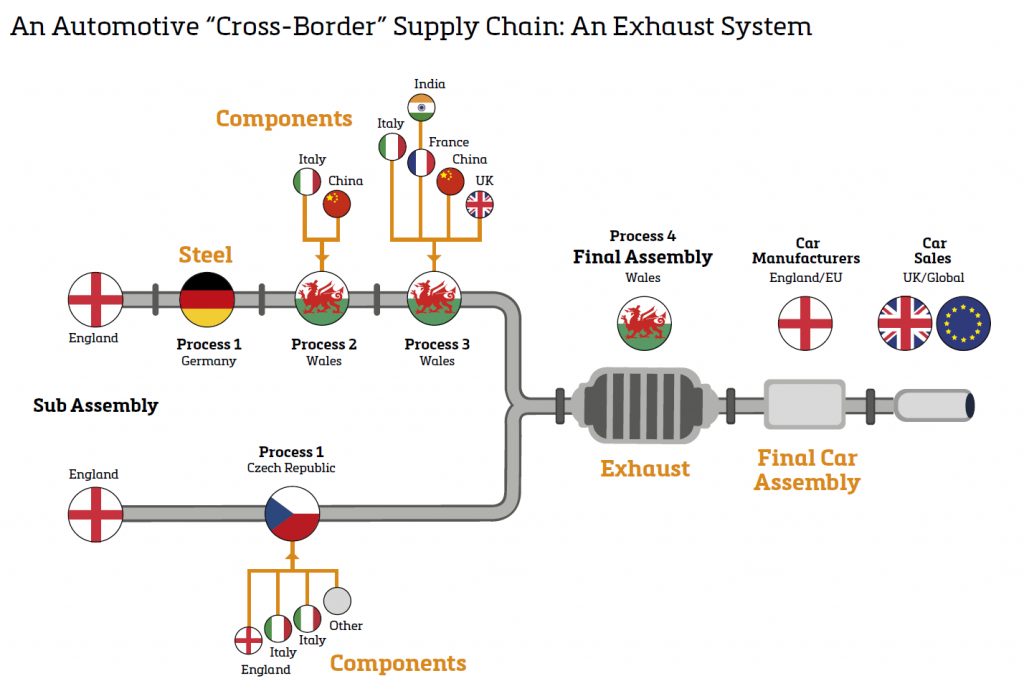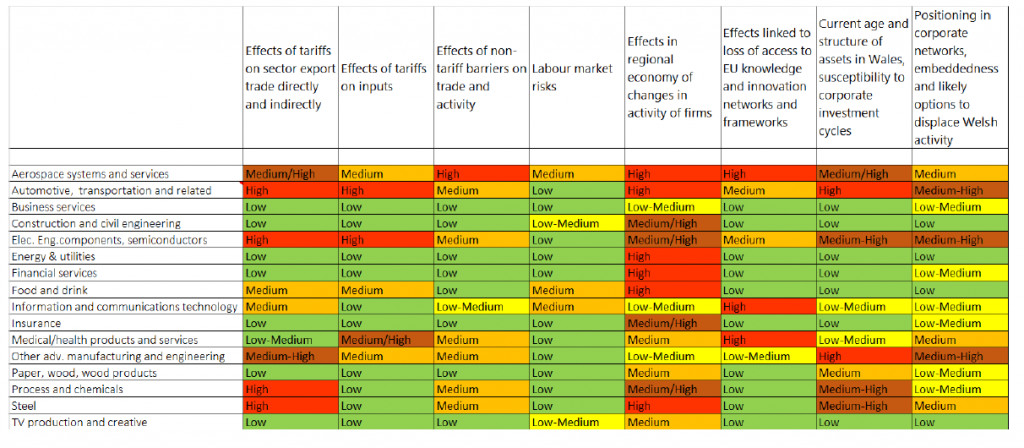On 13 September, the UK Government published its second batch of ‘no deal’ notices on how people and businesses should prepare for this eventuality. The notices were published after the UK Government’s Cabinet met to discuss how a ‘no deal’ outcome could be handled, and discussed departmental planning for this scenario.
Dominic Raab, the UK Government’s Secretary of State for Exiting the European Union, has said that the UK Government is aiming to get a Brexit deal with Brussels by mid-November at the latest, but is also stepping up contingency planning in case that does not happen.
The Welsh Government Cabinet Secretary for Finance, Mark Drakeford AM, stated that:
Once again, these Technical Notices show the disruption of a ‘no deal’ Brexit. There is no good news in these notices – nothing contained in the 140 pages will make life better for the people of Wales or our businesses. Instead, they demonstrate how crashing out of the EU will mean increased costs, burdens and new red tape for businesses and citizens.
The First Minister, Carwyn Jones AM, wrote to the External Affairs and Additional Legislation (EAAL) Committee on 10 September to inform it that the Deputy Chief Executive of NHS Wales wrote to health bodies following the release of the first batch of notices, and the Welsh European Funding Office wrote to stakeholders regarding the notices on EU funded programmes. The First Minister told the EAAL Committee on 17 September that he would see how much of this information could be published, with the intention of publishing as much as possible.
This article sets out some of the key implications for individuals and businesses of the second set of ‘no deal’ notices. Our article from last month explains what a ‘no deal’ scenario is, and covers the first batch of guidance published by the UK Government. It also highlights some of the key issues of importance for Wales. We’ll be publishing further articles as more notices are published.
What does the second batch of ‘no deal’ guidance say about issues affecting individuals?
Much of the media focus around the guidance published on 13 September has been on the impact of a ‘no deal’ scenario on individuals, with the main issues affecting people living in Wales and the rest of the UK being mobile phone roaming charges, driving licenses and passports.
If a ‘no deal’ scenario came to pass, the costs that EU mobile operators would be able to charge UK operators for providing mobile phone roaming services would no longer be regulated after March 2019. This would mean that surcharge-free roaming when you travel to the EU could no longer be guaranteed. However, the UK Government says it would legislate to ensure that the requirements on mobile operators to apply a financial limit on mobile data usage while abroad is retained in UK law (this would be retained at the current limit of £45).
Driving licenses may no longer be valid on their own in the EU after March 2019, as drivers may be required to obtain an international driving permit to enable them to drive within the EU.
On passports, the UK Government advises that from 29 March 2019 British passport holders travelling to those EU Member States that signed up to the Schengen agreement (all except Ireland, Romania, Bulgaria, Croatia and Cyprus) will be considered as ‘third country nationals’ in the event of the UK leaving the EU without a deal.
The practical implications of this are that UK nationals are advised to ensure that passports have at least 6 months remaining until expiry when arriving in the Schengen area, as this is a requirement of the Schengen Border Code. This is not the case for Ireland, which is covered by the Common Travel Agreement, under which British and Irish citizens are not required to take any action to protect existing entitlements to move freely between, and reside in, Britain and Ireland. Therefore, this will not affect the ports of Holyhead, Fishguard and Milford Haven, which are the routes for passenger travel between Wales and Ireland.
What are the key implications for Welsh businesses?
The UK Government’s second batch of ‘no deal’ notices highlight implications for trade between the UK and EU. Areas of relevance to Wales are trade conducted under the mutual recognition principle; trade in goods subject to EU-wide product specific rules; and vehicle type-approval for vehicle and component manufacturers.
The mutual recognition principle covers a number of manufactured goods such as furniture, textiles and bikes. Under this principle, some manufactured goods are subject to national regulations rather than EU-wide rules, but can circulate on the EU market. Under a ‘no deal’ scenario, UK businesses would have to meet the requirements of the first EU Member State they export to (not including countries products travel through), and any imports would need to satisfy UK requirements.
Under a ‘no deal’ scenario, after March 2019 results of conformity assessments for products which are specifically subject to EU-wide rules that are carried out by UK notified bodies will no longer be recognised by the EU. These bodies are approved by the EU to assess the conformity of projects with EU legislation. This means that products tested by a UK notified body will no longer be able to be placed on the EU market without retesting and re-marking by an EU recognised conformity assessment body. This will be relevant to products exported by Welsh businesses such as machinery, electric and electronic equipment.
Vehicle type-approvals allow vehicle and component manufacturers to place new products on the market. If a ‘no deal’ scenario occurred, after March 2019 type-approvals issued in the UK would no longer be valid for sales or registrations on the EU market. Therefore, the UK Government advises that manufacturers will need to ensure that they have approval from a type-approval authority in an EU country to sell their product in the EU.
The graphic below illustrates an example of the cross-border nature of the supply chain for cars, where different stages are undertaken in Wales, England and countries in and beyond the EU. This shows the impact of this scenario on products Wales plays a key role in manufacturing.
These potential impacts are in addition to those identified in the first batch of notices. These include:
- Tariffs being applied to exports to, and imports from, the EU. The UK would determine its own tariffs while the EU would apply its Common Customs Tariffs to UK products; and
- Businesses may need to apply the same customs and excise rules to goods moving between the UK and EU as are currently in place between the UK and non-EU countries, for example customs declarations; and safety and security declarations.
Tariff and non-tariff barriers such as these represented some of the key concerns articulated by Cardiff Business School in its assessment for the Welsh Government of the impact of Brexit on medium and large firms located in Wales. In particular, tariffs would affect the automotive; electrical engineering and semi-conductor; process and chemicals; and steel sectors in Wales. The aerospace sector would be particularly affected by non-tariff barriers.
Article by Gareth David Thomas, National Assembly for Wales Research Service
Image source: Welsh Government, Trade Policy: the issues for Wales
Image sources: Cardiff Business School, EU Transition and Economic Prospects for Large and Medium Sized Firms in Wales








